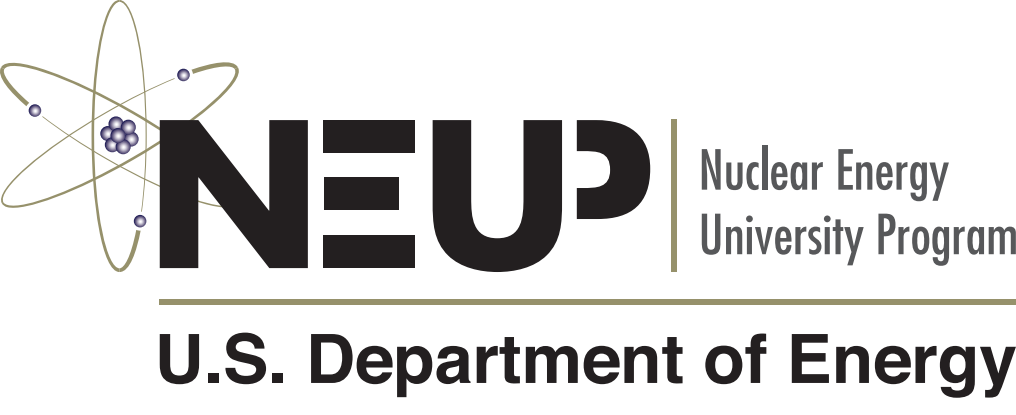FY 2020 Integrated Research Projects Awards
The Department of Energy is awarding $10.8 million for three
Integrated Research Projects (IRPs), which address well-defined but highly complex technical issues impacting key Office of Nuclear Energy (NE) mission objectives. IRPs are multi-million dollar, three-year projects executed by university-led consortiums that typically include multiple universities, industrial and international research entities, and the unique resources of the DOE National Laboratories. IRPs comprise a significant element of DOE's innovative nuclear research objectives and illustrate NE's strategy to pursue R&D solutions most directly relevant to the near-term, significant needs of the NE R&D programs.
IRP award recipients are listed below.
|
Title |
Lead University
|
Funding Amount* |
Project Description |
Center for thermal-fluids application in nuclear energy: Establishing the knowledgebase for thermal-hydraulic multiscale simulation to accelerate the deployment of advanced reactors | Pennsylvania State University | $3,000,000 | Researchers will establish a university component to the recently established Center Excellence for Thermal Fluids Applications in Nuclear Energy that is fully integrated with the laboratory efforts and its stakeholders (e.g., industry, DOE programs, NRC).The consortium will deliver improved, fast-running models for complex physical phenomena involving turbulent mixing, thermal stratification and thermal striping in complex geometries relevant to these reactors. This will in turn lead to improved economics by achieving higher operating temperatures and/or a reduction in capital costs. |
Multi-physics fuel performance modeling of TRISO-bearing fuel in advanced reactor environments | University of Tennessee at Knoxville | $3,000,000 | Researchers will develop and validate accurate and computationally efficient multiphysics TRISO fuel performance models for advanced pebble bed fluoride cooled, and gas cooled high temperature reactor concepts currently being pursued by industry partners. BISON-based fuel performance models will be informed by reactor core modeling tools, and focus on predicting the thermal-mechanical response of TRISO fuel compacts during normal operation and transient accidents. |
Molten Salt Reactor Test Bed with Neutron Irradiation | Massachusetts Institute of Technology
| $4,800,000 | Researchers will build and operate a flowing liquid salt loop with heated and cooled sections where the salt is irradiated with neutrons from the MIT research reactor. The loop will (1) enable understanding the behavior of tritium, noble metal fission products, and other radionuclides in a salt environment , (2) testing of instrumentation and (3) be a prototype for future loops at other universities and in DOE test reactors. The salt can include uranium that generates fission products.
|
|
Total |
$10,800,000 | |

